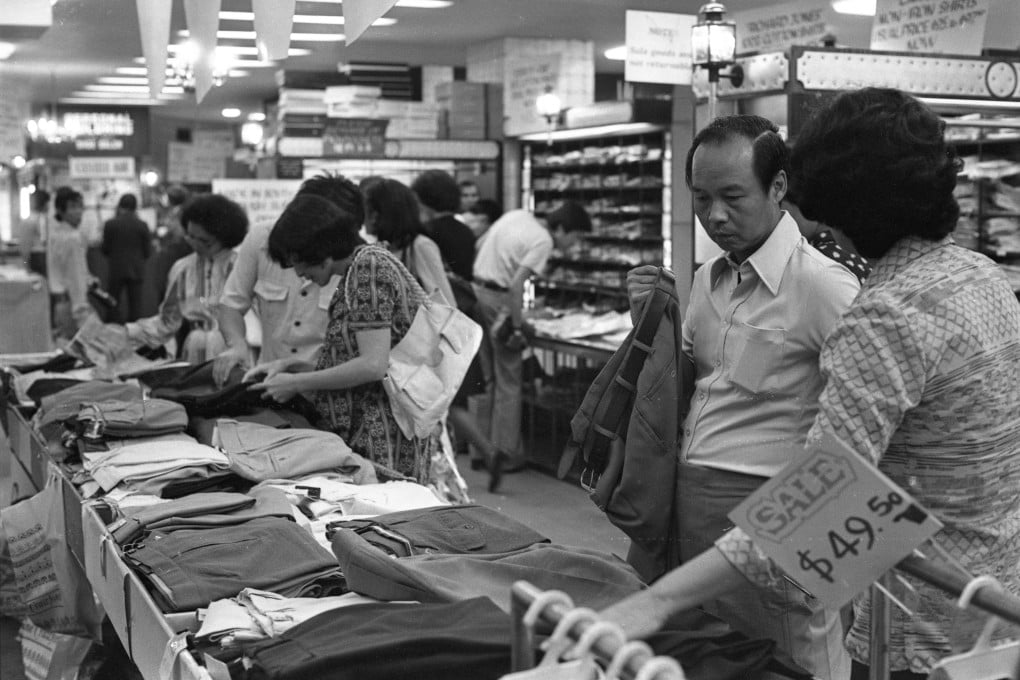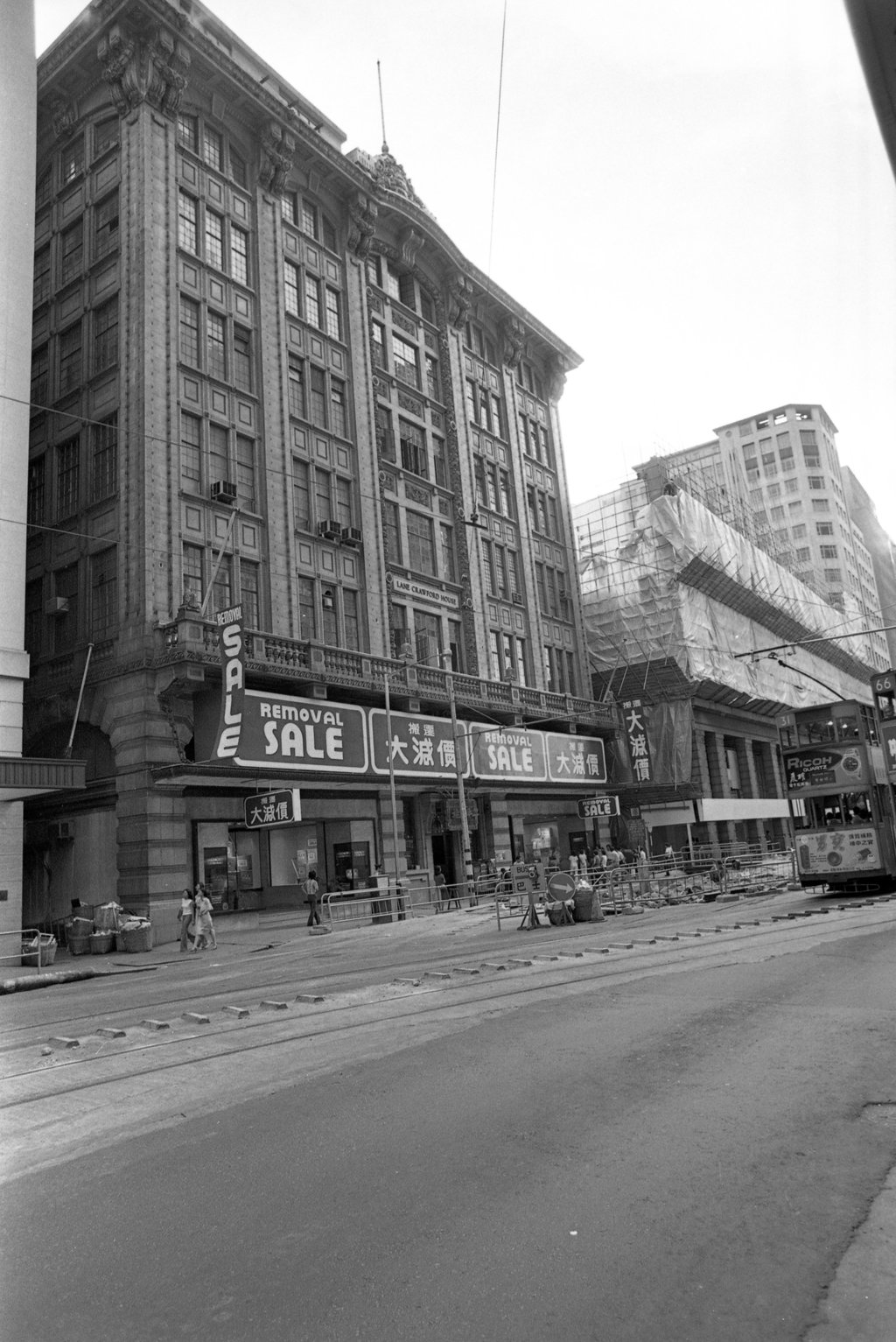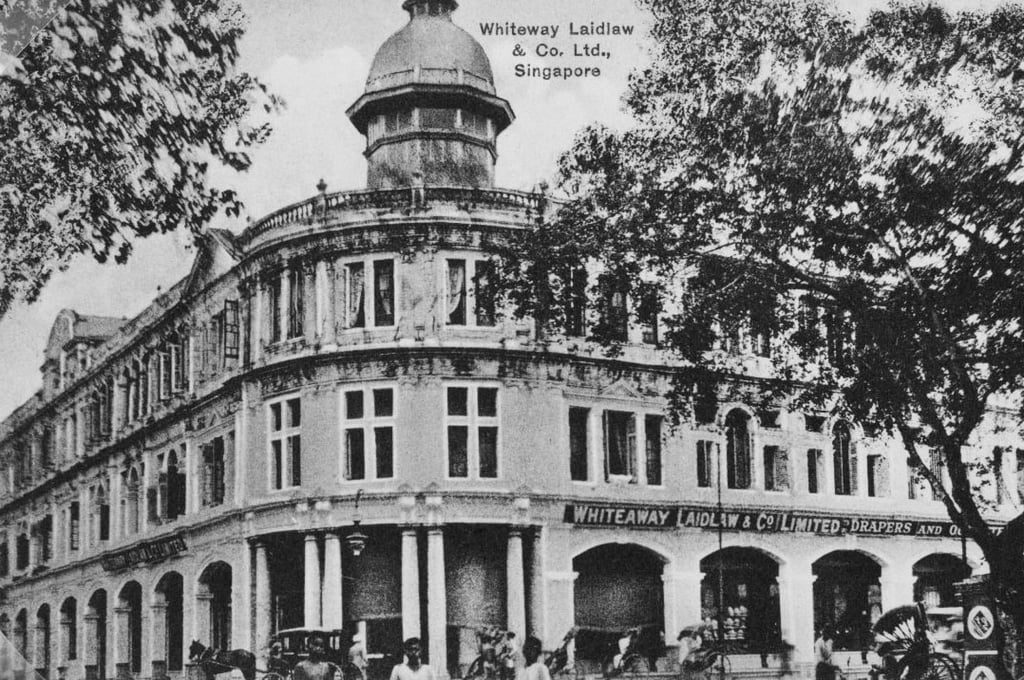Then & Now | Remember Hong Kong’s floorwalkers – men with a certain bearing paid to walk round department stores?
- Often former military men, they walked in an authoritative way around quality stores like Lane Crawford and Whiteaway, Laidlaw & Co offering help and watching for shoplifters

From Hong Kong’s mid-19th century urban beginnings until quite recently, major department stores such as Lane Crawford and Whiteaway, Laidlaw & Co employed a dedicated European managerial staff member, colloquially known as a floorwalker, to circulate on their floors throughout the day.
Mostly vanished from the modern retail world, floorwalkers were once ubiquitous, found in every sizeable establishment with pretensions to quality, everywhere from Manchester and Milwaukee, to Melbourne and Montreal.
Positions were often filled by former military men (mostly senior non-commissioned officers) who had chosen to retire in Hong Kong. Usually in their mid-to-late 50s, they had had service careers that bequeathed a competent, “in charge” demeanour that inspired immediate confidence. Floorwalker jobs – like those of theatre or cinema doormen in Britain – were physically undemanding roles that could be filled for another decade or so before the men retired fully.

As the job title suggests, a floorwalker’s function was to “walk the floors” in an authoritative but not overbearing manner, keeping a weather eye on customers, staff and the general surroundings. As well as being approachable and courteous, and firm when required, their ability to “know what they didn’t know”, then make appropriate inquiries, was a valuable skill. But perhaps their most important role was to discreetly yet shrewdly size up patrons as they came through the store, ask what they were seeking should they look undecided, then offer assistance. In time, the best became highly respected parts of their establishment’s profile.
While not explicitly store detectives, floorwalkers were streetwise and could instinctively sniff out untoward behaviour. In instances where some small object had been “accidentally” slipped into an overcoat pocket or handbag, a sudden appearance by the floorwalker, with a polite-but-pointed inquiry about whether any particular help was required, usually had the desired chastening effect: items were either quietly returned to the shelves or paid for on the way out.
Floorwalkers sometimes left more lasting impressions on customers, long after both the men, and the businesses for which they worked, had vanished from the scene.

One local Portuguese friend recently recalled her experience of a floorwalker at Whiteaway, Laidlaw & Co’s Kowloon branch in the mid-1960s.

